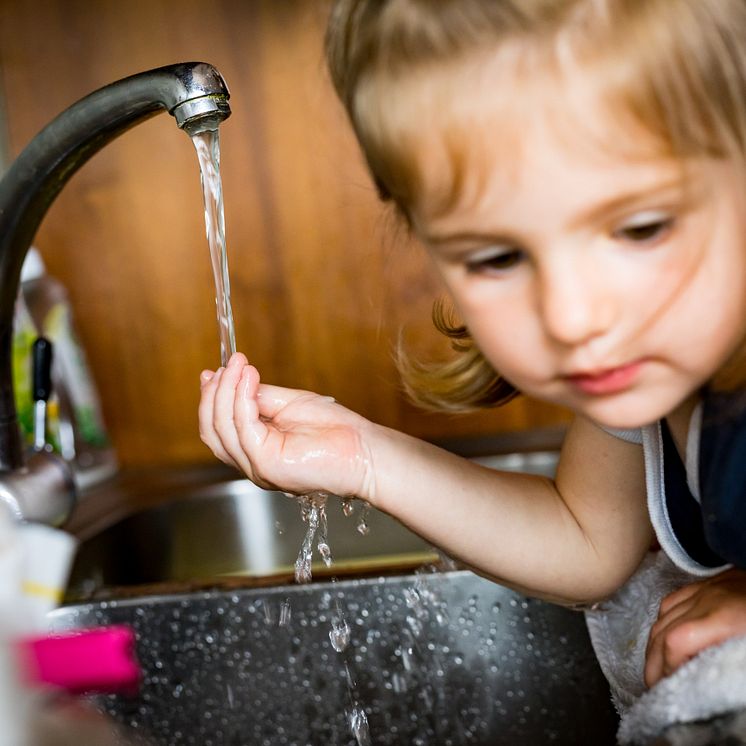
The United States’ national water quality crisis puts responsibility on Americans to safeguard their own tap water
Overland Park, KS, August 24, 2017 – August is designated Water Quality Month in the United States, yet a wave of new reports reveal Americans cannot take for granted that their tap water is healthy for consumption.
The nation’s drinking water passes through a deteriorating water infrastructure and contains increasing lead, PFC and pesticide contamination. These developments are putting the personal responsibility on Americans to protect themselves, says Bluewater, a leading water purification brand.
“From small rural communities to large cities, people across the United States are increasingly fearful about their health in the wake of drinking water contamination that has hit communities like Flint, Mich., and Hoosick Falls, N.Y., where high levels of PFOA were found in drinking water,” said Lin Guo, U.S. head of Overland Park-based Bluewater.
Noting how a nationwide Gallup poll in April 2017 found that nearly two-thirds of Americans worry “a great deal” about pollution of drinking water, Ms. Guo said advanced water treatment processes able to tackle the newly emerging contaminants may take years.
“Until a solution is in place, the best hope for anyone concerned about their tap water is to install a point-of-use RO system, which can remove large pharmaceutical molecules, lead and other toxic contaminants from drinking water before it comes out of the faucet,” Ms. Guo said.
Before the summer, the Natural Resources Defence Council (NRDC) issued a report saying 77 million people—roughly a quarter of the U.S. population—spread across all 50 states ‘were served by water systems reporting violations of the Safe Drinking Water Act in 2015’. The offenses ranged from arsenic to nitrate contamination, and included often-serious failures to test or report contamination levels, according to the NRDC, which said America is facing a nationwide drinking water crisis that goes well beyond lead contamination.
The Federal USGS science agency has warned that research is ‘documenting with increasing frequency that many chemical and microbial constituents not historically considered as contaminants are present in the environment on a global scale’. Those contaminants encompass antibiotic-resistant bacteria that survive on beaches, on plant surfaces, and in the soil, as well as other pollution such as insecticides and pharmaceuticals.
Scientists also report finding bug-killing neonicotoids in the human drinking water chain. A study, published in Environmental Science & Technology Letters by chemists and engineers from the U.S. Geological Survey, a federal agency, and the University of Iowa, identified the presence of three neonicotinoids in drinking water delivered from an Iowa City treatment facility despite treatment.
Neonicotinoids, a class of insecticides used widely in the United States since the 1990s by farmers to fight crop damaging insects, have been blamed for an alarming decline in honeybee populations. Although engineered to cause less toxicity in birds and mammals than targeted insects, neonicotinoids have seen growing scientific consensus that they spark environmental damage.
So, what can Americans do to protect themselves?
The Centers for Disease Control and Prevention (CDC) says reverse osmosis systems can reduce the levels of common chemicals such as lead, volatile organic compounds and germs in drinking water.And the American Water Works Association (AWWA) also says reverse osmosis is ‘excellent’ for removing the health-threatening perfluorinated compounds (PFCs) used for industrial and consumer applications such as non-stick coatings and firefighting foams.
A Bluewater Pro water purifier (photo below) can generate up to 5.7 liters of purified tap drinking water each minute, efficiently removing toxic metals such as lead as well as chemicals, microorganisms and pharmaceutical by-products from drinking and bathing water. Using up to 82% less water than a traditional reverse osmosis water purifier and highly energy efficient, Bluewater water purifiers are used by homeowners and in local businesses such as restaurants, medical surgeries and water dispensing operations across America to help ensure tap water is free of health harming contaminants.
For more information, please contact,
USA
Michael Grimm, Finn Partners Senior Account Executive, at michael.grimm@finnpartners.com or +312 329 3975
International
David Noble, Bluewater head of communications, at david.noble@bluewatergroup.com or +44 778 530 2694